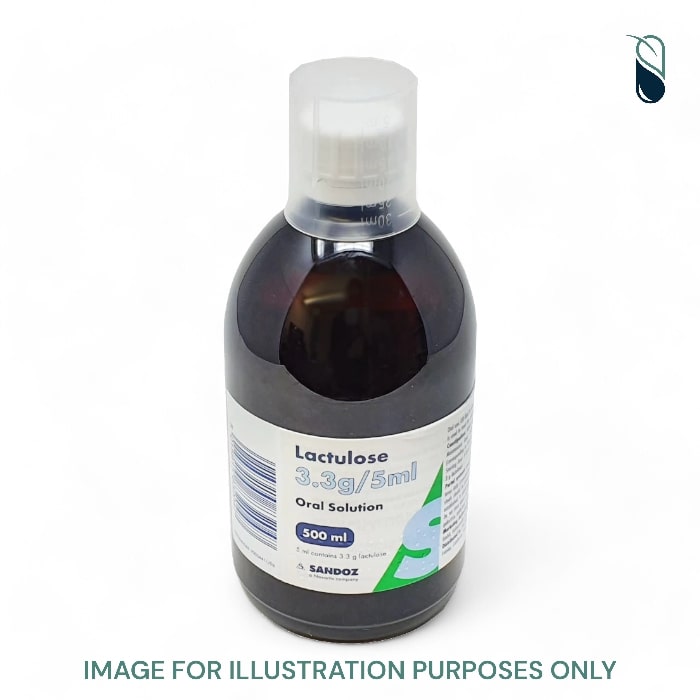Lactulose oral solution is used to treat the symptoms of constipation and to treat a special liver disease (portal systemic encephalopathy). Lactulose belongs to a group of medicines called osmotic laxatives, which help retain water in the bowels and soften the stools. Lactulose solution encourages normal bowel movement.
Like all medicines, Lactulose Solution can cause side effects, although not everybody gets them.
Side-effects may inlcude:
- diarrhoea
- flatulence (wind)
- nausea (feeling sick)
- vomiting
- abdominal pain
- electrolyte imbalance due to diarrhoea
Do not take Lactulose Solution if:
- you are allergic (hypersensitive) to lactulose or any of the other ingredients
- you have a rare problem called ‘galactosaemia’
- you have an intestinal blockage caused by anything else but normal constipation, digestive perforation or risk of digestive perforation
If you are not sure, talk to your doctor or pharmacist before taking Lactulose Solution.
If you have diabetes and are treated for hepatic encephalopathy, your dose of Lactulose Solution will be higher. This high dose contains a large amount of sugar. Therefore, your anti-diabetic medicine may need to be adjusted.
During the treatment with laxatives you should drink sufficient amounts of fluids (approx. 2 litres/day, equal to 6-8 glasses).
If you take Lactulose Solution for several days and there is no improvement in your condition or if your symptoms worsen, please contact your doctor.
Other medicines and Lactulose Tell your doctor or pharmacist if you are taking, have recently taken or might take any other medicines.
Talk to your doctor or pharmacist before taking this medicine if you are pregnant, might become pregnant or are breast-feeding. Lactulose can be used during pregnancy and when breast-feeding if necessary. No effects on fertility are to be expected.
Lactulose contains sugars, such as milk sugar (lactose), galactose and fructose. If you have been told by your doctor that you have an intolerance to some sugars, contact your doctor before taking this medicine.








Social History